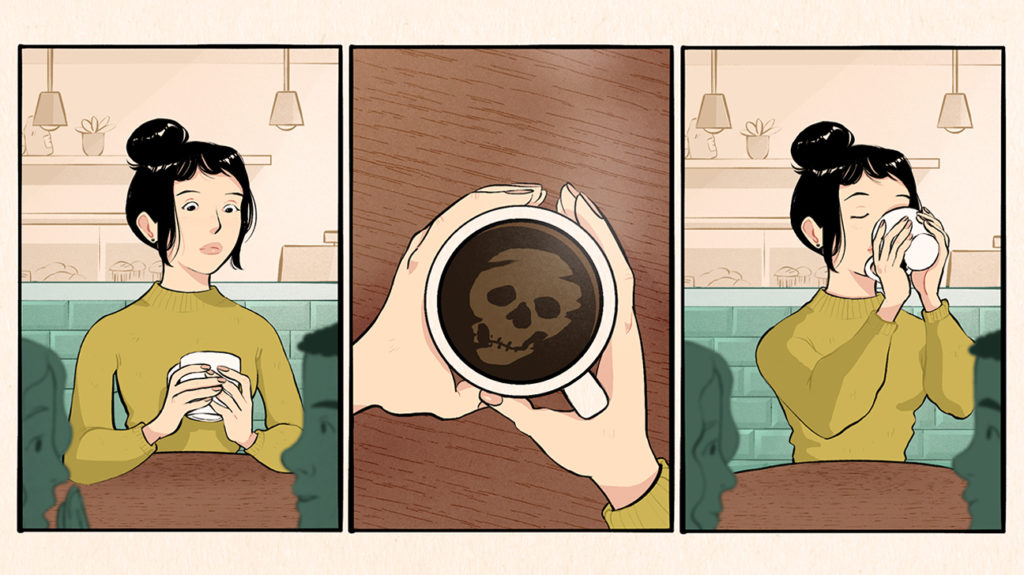“I can’t take it anymore,” “I think I’m going to have a heart attack,” “These symptoms are unbearable,” “When I have difficulty breathing, I feel like I’m going to die of anxiety. “These complaints are common in patients suffering from panic attacks or anxiety attacks. People with panic disorder have sudden, repeated fear attacks that last several minutes. Sometimes symptoms can last longer. These scary attacks are called panic attacks.
Attacks can occur at any time and many people fear they will happen at worst. For example, a person with panic disorder may be discouraged and embarrassed that they cannot do daily activities such as going to a store or driving. a car.
- “The more attacks I had.
- The more afraid I was.
- I’ve always lived in fear.
- I didn’t know when I might have another stroke.
- Was he so scared he didn’t want to leave my house?-Lacia-.
Panic attacks are characterized by fear of losing control or dying of anxiety. These people have strong physiological reactions that may resemble a heart attack, for example, so one of the most common symptoms of panic disorder is the fear of dying.
From there, I would like to send a reassuring message to these people: no one died of a panic attack. It is true that the symptoms are very unpleasant and alarming, but no one dies from a panic attack. Another very special thing is that this panic attack can lead to uncontrolled behavior (such as running and crossing a street without looking), which can jeopardize our physical integrity.
Panic attacks can occur in the context of any anxiety disorder, as well as other mental disorders, these disorders can include depressive disorders, post-traumatic stress disorder, substance use disorders, etc. , in addition, they can also occur in certain medical conditions. (eg, heart, respiratory, gastrointestinal health). As we can see, panic attack is not a disorder per se, it is a symptom.
A panic attack is a sudden onset of fear or severe discomfort that reaches its maximum expression in minutes, while four or more of the following symptoms occur:
As we have said, these symptoms can occur in the context of several disorders, if you have anxiety, these symptoms may be familiar to you.
Anxiety is an emotion common to all human beings, it is present throughout life and, like other emotions, has its function. It prepares us for what can be dangerous and is therefore activated by the perception of a threat or danger.
Evolution, it served the human being to survive preparing him for combat or flight, his goal is adaptive, generating protection against possible dangers, we can imagine it as an alarm system that protects us, but if it protects us, how can it hurt?us for the rest of our lives?
Anxiety is neither good nor bad, it is one more emotion, like anger or joy, but it becomes negative or pathological when it is excessive or uncontrollable.
Pathological anxiety is defined as one that is excessive or disproportionate to the stimulus that causes it, appears frequently or sustainably and limits the lives of people who suffer from it, limiting its adaptation to the environment, by itself it cannot kill us, because it is overprotecting us from the dangers we imagine.
If we think about anxiety and its adaptive function, we will see that it is necessary, for example, when there is a loud noise it is normal to have fear and stress, this would help us escape from the place if something could fall off. We.
If your brain detects a risky situation, be it real or imagined, it will activate an alarm system that will cause physiological changes to protect your life. These changes in the panic attack are experienced as a threat because the danger is not real. If you were really in a risky situation, these symptoms would not seem dangerous to you. He would see them as normal in the face of real danger.
For example, if you were in a burning area at this time, you would be aware of the danger and your alarm system would be triggered, then physiological activation would come into play, allowing you to run out of space and preserve your life. Do this, you will need your heart to beat faster to send more blood to your limbs. However, your heart doesn’t beat faster because of heart failure, it won’t die of anxiety.
Something similar happens with shortness of air. No one died of suffocation or suffocation during a panic attack, on the contrary, oxygen in the blood increases due to the increase in the number of breaths we do, this is what we call hyperventilation.
Then you don’t have to worry. You won’t die of anxiety, the symptoms are irritating, but not dangerous, it’s normal that if you go to the doctor for these symptoms I’ll tell you that he’s anxious and doesn’t have to worry. In cases where the anxiety is very intense or recurrent, it will be referred to a specialist.

